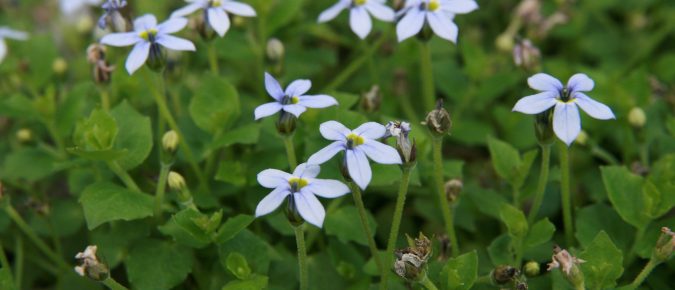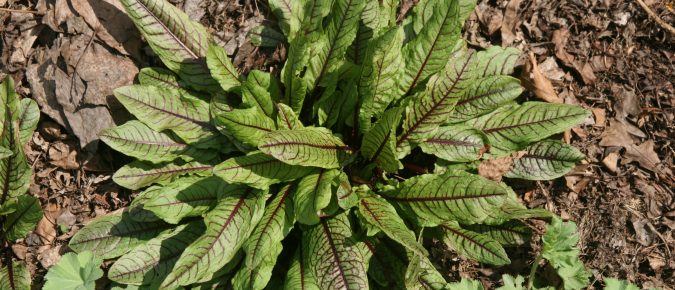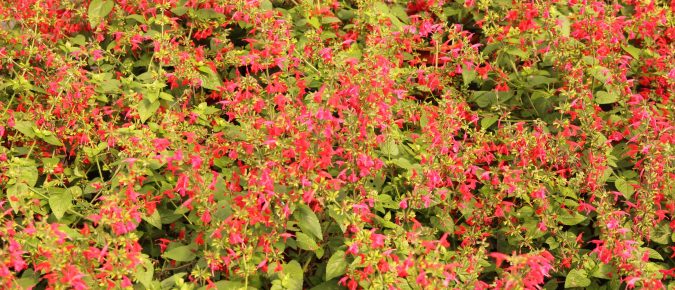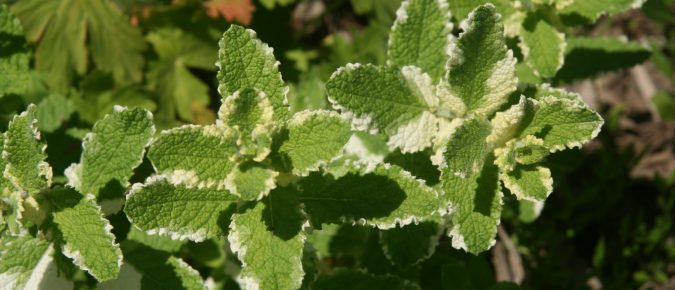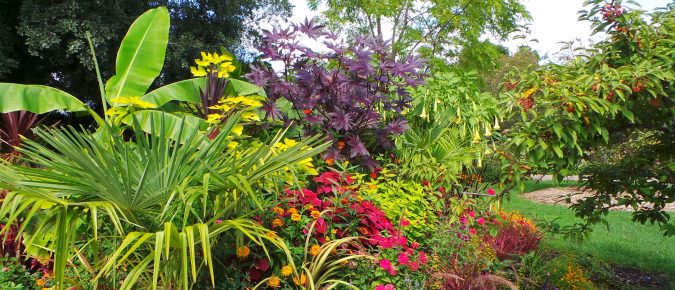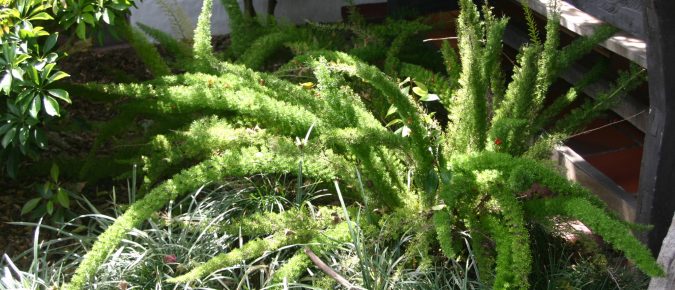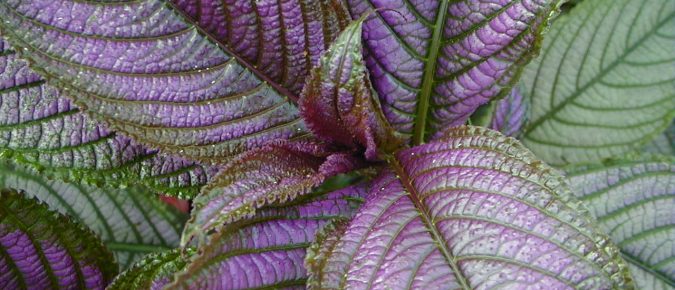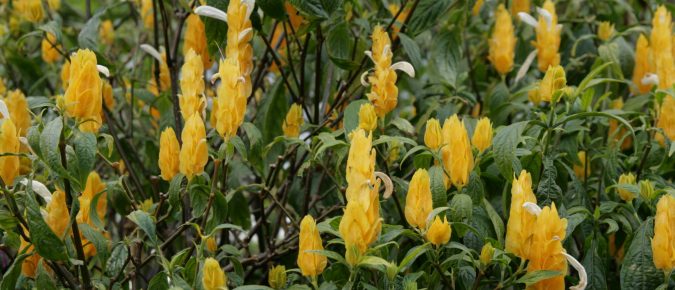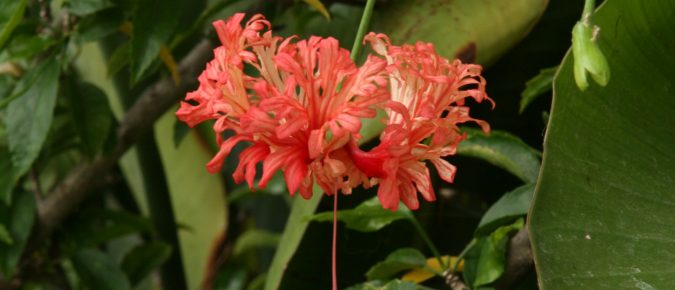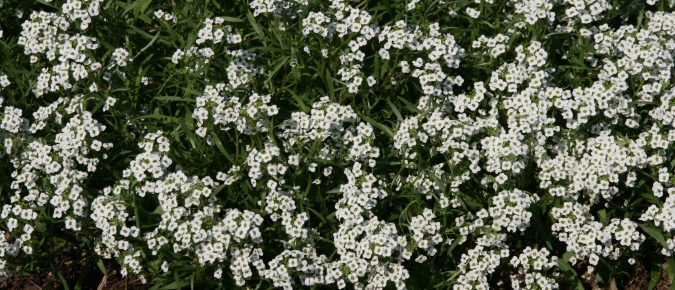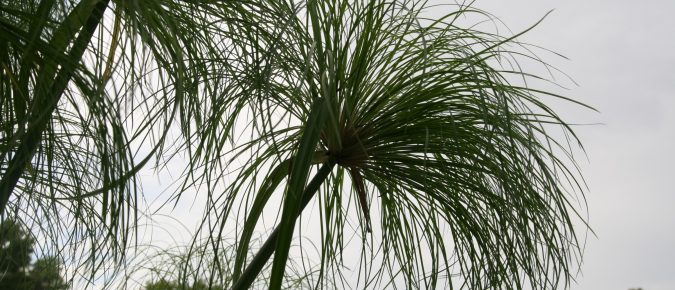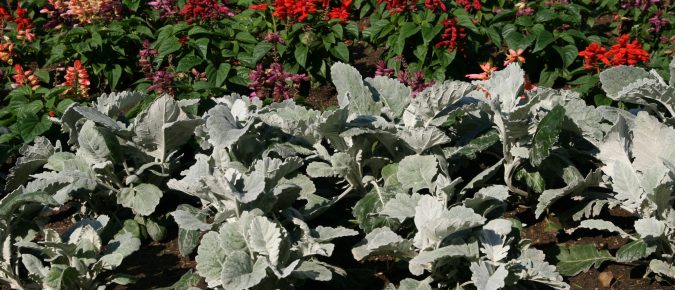Star-shaped flowers of blue, pink or white and ferny foliage makes laurentia a great filler in the flower bed or containers. Although this plant is really a perennial, since it is only hardy to zone 7, most Wisconsin gardeners use it as an annual to add pleasingly fine foliage and soft color in the garden. Read more about laurentia in this article…
Bloody dock is an attractive plant with a network of brightly colored veins on its wide, lance-shaped leaves. This rosette-forming plant is easily grown as an annual or perennial in sun to partial shade and can even be used in a water garden. Find out more about Rumex sanginueus by reading this article…
Add some airy sprays of colorful flowers to your gardens with this pretty plant. A perennial in its native habitat from Central America to the southeastern US, scarlet sage is used as an annual or bedding plant in cooler climates. Several cultivars offer bright and pastel blooms on sturdy plants. To learn more about Salvia coccinea, read this article…
Pineapple mint is a fuzzy-leaved plant that can be used as an herb or included in the garden as an ornamental for its variegated foliage. To learn more, read this article…
Looking to add drama to your landscape? Castor bean is a fast-growing tender perennial with huge leaves that can be used as a seasonal annual in cooler climates. Chose from a number of varieties of this East African native selected for their ornamental value to make a bold statement in your garden. To learn more about this plant, read this article…
Asparagus fern is a South African native which is not a fern, but is related to the edible asparagus. The bright green, ferny foliage of this tender perennial makes it a nice houseplant and a good counterpoint to brightly colored flowers in an outdoor seasonal planting. To learn more about this plant, read this article…
Looking to add some drama to your garden? Forget flowers and go with iridescent foliage instead for a real show-stopper! Persian shield is a tender perennial grown as an annual in our climate that has been used since Victorian times for its ornamental foliage. To learn more about this exotic, but easily grown plant, read this article…
Pachystachys lutea is a common landscape ornamental in tropical areas, but you can grow it at home. It’s upright, bright yellow to orange inflorescences contrast nicely with glossy, dark green foliage. To learn more about growing this exotic flowering tropical plant as an outdoor seasonal plant or houseplant, read this article…
Hibiscus is a quintessential tropical flower, with big, brightly-colored blossoms. But there is a species that has very different, pendant flowers with elaborately dissected and recurved petals. Like other tropical hibiscus, Hibiscus schizopetalus is a tender plant that cannot survive our winters but can be grown as a houseplant. To learn more about this species, read this article…
With billowy white or purple flowers, sweet alyssum is a good addition to annual flower beds or containers. This low-growing plant native to the Mediterranean makes a good ground cover and the sweetly fragrant flowers are attractive to many beneficial insects. To learn more about sweet alyssum, read this article…
Want an easy-to-grow plant to provide a tropical feel for the growing season? Papyrus is a tropical perennial grown as an annual in the Midwest. It is right at home in shallow water gardens, but can also be grown in containers or moist ground. To find out more about this interesting plant, read this article…
With its soft, silvery leaves, dusty miller is typically grown as an annual foliage plant – despite the fact that it’s actually a perennial that will flower after the first year. The color is an accent to the green of most other plant leaves and complements brightly colored flowers. To learn more about this bedding plant, read this article…


